History
History is the study of past events, particularly human activities. It encompasses a wide range of topics, including political, social, economic, and cultural developments. By studying history, we can gain a better understanding of how the world has evolved and the factors that have shaped our present-day society.
Key Concepts in History
- Chronology: The arrangement of events in the order in which they occurred.
- Cause and Effect: Understanding the reasons behind historical events and their consequences.
- Historical Interpretation: The analysis and evaluation of different perspectives on historical events.
- Primary and Secondary Sources: The distinction between firsthand accounts and later interpretations of historical events.
- Historiography: The study of the methods and principles used in historical research and writing.
Study Guide
When studying history, it's important to engage with the material actively and critically. Here are some tips for effective history study:
- Read Carefully: Pay close attention to the details of historical texts and consider the context in which they were written.
- Take Notes: Summarize key points and make note of important dates, names, and events.
- Use Multiple Sources: Consult different historical sources to gain a well-rounded understanding of a particular topic or period.
- Ask Questions: Challenge assumptions and seek to understand the reasons behind historical events and developments.
- Make Connections: Relate historical events to their broader social, political, and cultural contexts.
- Practice Critical Thinking: Evaluate different historical interpretations and consider their strengths and weaknesses.
- Review Periodically: Regularly review your notes and test your understanding of historical concepts.
By approaching history with a curious and critical mindset, you can gain a deeper appreciation for the complexities of the past and their relevance to the present.
[History] Related Worksheets and Study Guides:
.◂Science Worksheets and Study Guides Eighth Grade. Organic compounds
Study Guide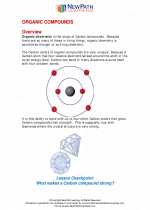 Organic compounds
Organic compounds  Worksheet/Answer key
Worksheet/Answer key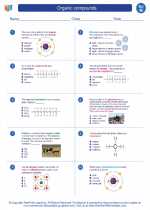 Organic compounds
Organic compounds  Worksheet/Answer key
Worksheet/Answer key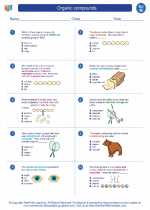 Organic compounds
Organic compounds  Worksheet/Answer key
Worksheet/Answer key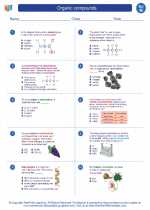 Organic compounds
Organic compounds  Vocabulary/Answer key
Vocabulary/Answer key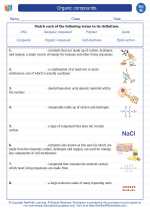 Organic compounds
Organic compounds  Vocabulary/Answer key
Vocabulary/Answer key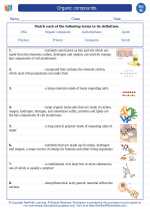 Organic compounds
Organic compounds 

 Worksheet/Answer key
Worksheet/Answer key
 Worksheet/Answer key
Worksheet/Answer key
 Worksheet/Answer key
Worksheet/Answer key
 Vocabulary/Answer key
Vocabulary/Answer key
 Vocabulary/Answer key
Vocabulary/Answer key

The resources above cover the following skills:
Physics: Students will use scientific skills and processes to explain the interactions of matter and energy and the energy transformations that occur.
Thermodynamics: Identify and explain that heat energy is a product of the conversion of one form of energy to another.
Identify and describe the various forms of energy that are transformed in order for systems (living and non-living) to operate: Chemical - Flashlight-Light; Mechanical - Pulleys-Motion; Solar/Radiant - Solar calculator; Chemical - Plant cells.